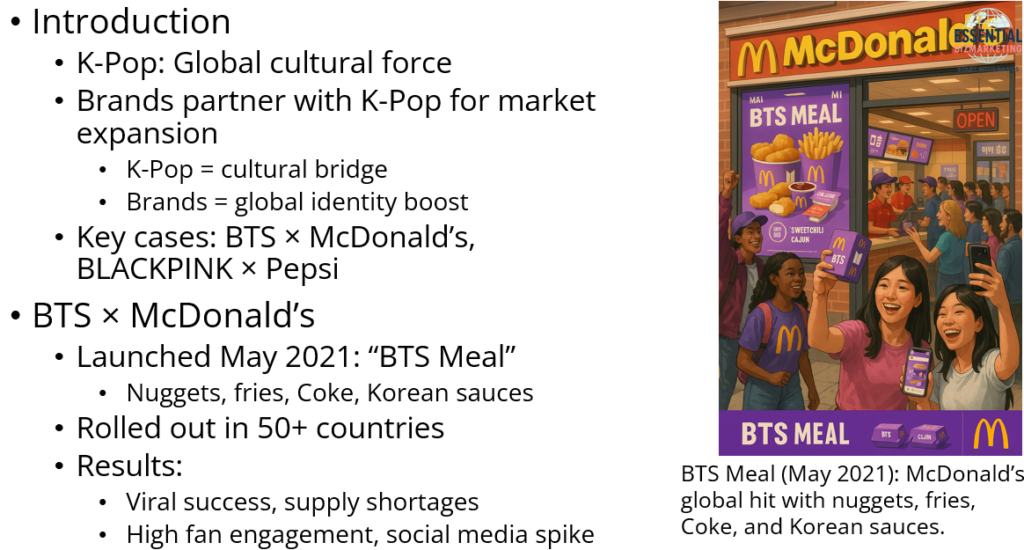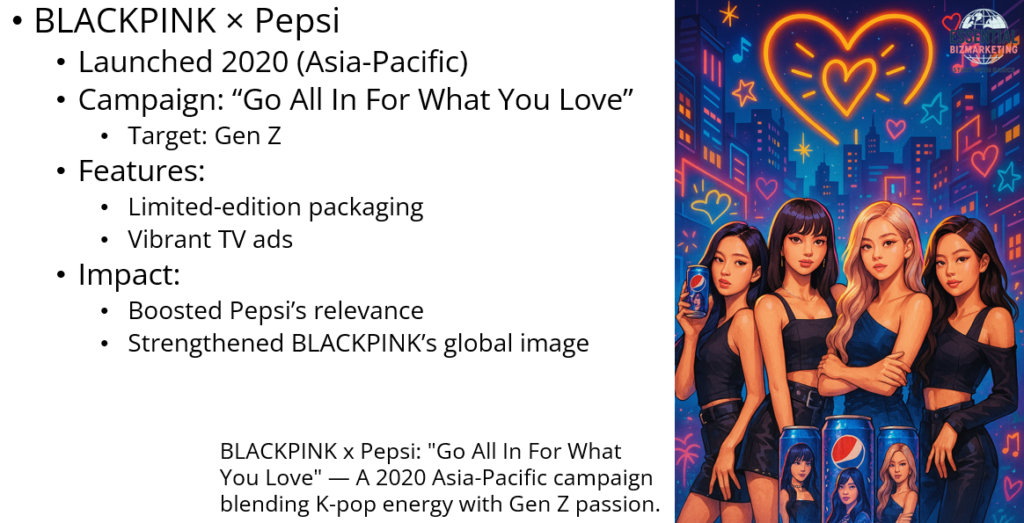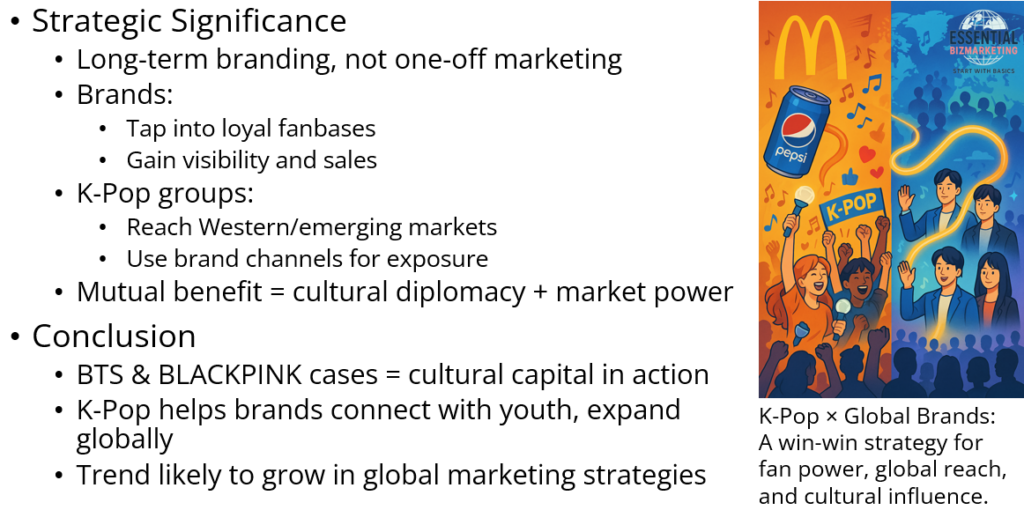Introduction

K-Pop has rapidly transformed into a global cultural force, with its stars gaining massive followings across continents. As part of this global influence, major international brands have strategically collaborated with K-Pop groups to expand their market reach. These partnerships serve as a dual strategy: K-Pop acts as a cultural bridge to diverse audiences, and brands leverage this appeal to enhance their global identity. Two of the most illustrative cases are BTS’s collaboration with McDonald’s and BLACKPINK’s alliance with Pepsi.
BTS and McDonald’s Collaboration
In May 2021, McDonald’s introduced the “BTS Meal” in collaboration with the global sensation BTS. The meal featured 10 Chicken McNuggets, medium fries, a medium Coke, and two unique dipping sauces inspired by recipes from McDonald’s South Korea—Sweet Chili and Cajun. This campaign launched in over 50 countries and quickly became a viral marketing success. Some outlets experienced supply shortages, and fans lined up in droves to experience the limited-time meal. According to reports and fan observations, McDonald’s saw a significant increase in engagement and social media interaction, showcasing the power of BTS’s fanbase in driving global marketing campaigns (Wikipedia, n.d.).
BLACKPINK and Pepsi Collaboration

BLACKPINK, one of the most prominent girl groups in K-Pop, partnered with Pepsi as brand ambassadors for the Asia-Pacific region in 2020. The campaign, themed “Go All In For What You Love,” aimed to connect with Gen Z consumers by inspiring them to passionately pursue their goals. As part of the campaign, Pepsi released limited-edition packaging featuring BLACKPINK members and launched commercials that highlighted the group’s vibrant image. The collaboration was not only successful in expanding Pepsi’s cultural relevance in Asian markets but also reinforced BLACKPINK’s image as global icons (Campaign Asia, 2020; Mothership.sg, 2021).
Strategic Significance of Collaborations

These collaborations are more than just marketing stunts—they reflect a broader strategic approach to global branding. For brands like McDonald’s and Pepsi, partnering with globally influential K-Pop artists allows access to loyal and highly active fanbases, often leading to immediate spikes in sales and brand visibility. Simultaneously, K-Pop artists gain increased exposure in Western and emerging markets through the brand’s distribution channels. This mutual exchange enhances cultural diplomacy and helps K-Pop groups maintain a dominant presence in the global entertainment industry.
Conclusion
The BTS-McDonald’s and BLACKPINK-Pepsi collaborations serve as case studies in the effective use of cultural capital in global marketing. These alliances show how brands can ride the wave of K-Pop’s influence to connect with global youth audiences and enter new markets. As K-Pop continues to expand its global footprint, such collaborations are expected to become a mainstay in international marketing strategies.
📚 References
Campaign Asia. (2020, January 15). Pepsi expands K-pop investment, appoints BLACKPINK as APAC brand ambassador. https://www.campaignasia.com/article/pepsi-expands-k-pop-investment-appoints-blackpink-as-apac-brand-ambassador/465852
Mothership.sg. (2021, May 18). Limited-edition Pepsi x BLACKPINK drinks available in all stores islandwide. https://mothership.sg/2021/05/limited-edition-pepsi-blackpink
Wikipedia contributors. (n.d.). BTS Meal. Wikipedia. Retrieved March 27, 2025, from https://en.wikipedia.org/wiki/BTS_Meal
📁 Start exploring the Blog
📘 Or learn more About this site
🧵 Or follow along on X (Twitter)
🔎 Looking for sharp perspectives on global trade and markets?
I recommend @GONOGO_Korea as a resource I trust and regularly learn from.
